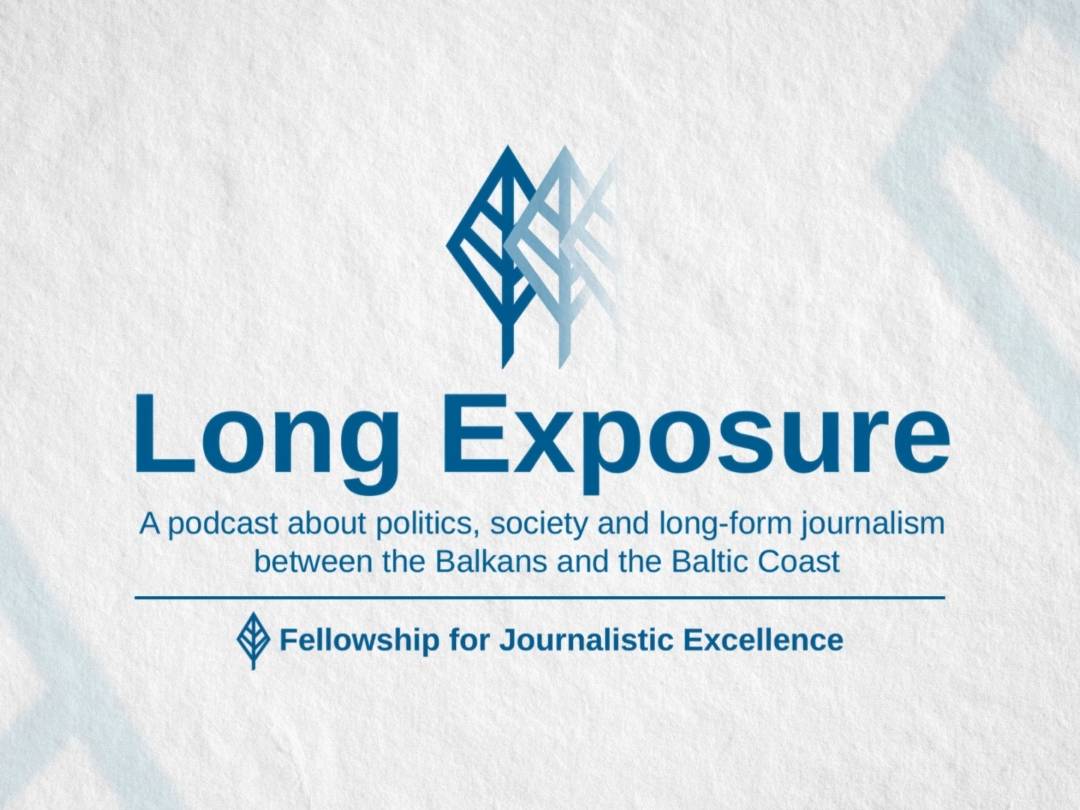What is the place of long-form journalism in an age of shrinking newsroom budgets and democratic decline? On the Long Exposure podcast, journalists from central, eastern and south-eastern Europe reveal how they are breathing new life into an old format.
The podcast examines the craft of long-form journalism, and its ability to uncover hidden truths about society and politics in the region. “The Fellowship has been producing revelatory features, analysis and investigations for nearly 20 years,” said the programme manager, Dragana Zarkovic-Obradovic. “The new podcast showcases some of the journalistic talent that has been nurtured by the programme over the years, and offers their insights into the events and processes behind the headlines.”
The first seven episodes are now available online. Follow the links below to hear:
- Fellowship editor Neil Arun introduce the podcast with reflections on the function of long-form journalism
- BIRN’s co-founder and former director, Gordana Igric, look back on a career spent navigating the shifting media landscape
- Polish journalist Tadeusz Michrowski on using immersive reporting to explore collapse of the Baltic coastal fisheries
- Bosnian journalist Eldin Hadzovic on the highs and lows of working as a fixer with international media
- British film-maker, former foreign correspondent and academic, Richard Pendry, discuss the politics of fixing
- Award-winning Croatian journalist Barbara Matejcic on covering Europe’s migration crisis along the “Balkan route”
- Polish journalist Mateusz Mazzini on the difficult days ahead for Donald Tusk
The Fellowship of Journalistic Excellence is an annual bursary for long-form journalism supported by the Erste Foundation and implemented by BIRN. The Fellowship emphasizes strong storytelling and rigorous, on-the-ground reporting – qualities traditionally associated with the best magazine journalism.
But unlike the legacy outlets that dominate the global market in long-form journalism, the Fellowship works exclusively with reporters who belong to the societies they are examining. The programme is open to journalists from a region spanning 14 countries, from Poland and the Czech Republic to Greece and Romania.
